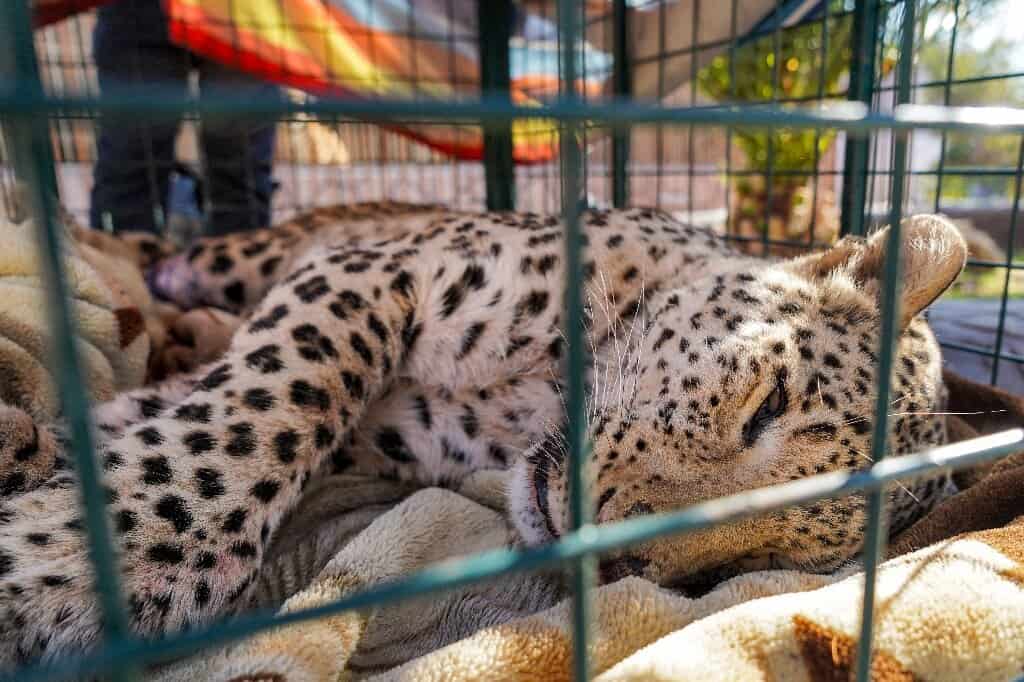An endangered leopard captured in Iraq’s mountainous north had its hind leg amputated on Friday following a trap-inflicted wound, an AFP photographer said.
The Persian leopard, taken in a day earlier in Iraq’s autonomous Kurdistan region near the border with Turkey, had injured two people, said Colonel Jamal Saado, head of the environmental protection police in Dohuk province.
Residents of a village near the town of Zakho lost around 20 sheep before realizing a leopard was attacking their flocks, he said.
The big cat sustained a wound to its back leg when it was caught in a shepherd’s trap, but managed to escape before villagers helped police track it down.
Saado said the leopard was given anesthetic before it was captured.
“We had two or three similar cases in Arbil province” several years ago, he said, adding that an animal of the same subspecies had previously been found dead near a village in Dohuk province.
Persian leopards are a panther sub-species native to Turkey, Iran, Afghanistan and the Caucasus.
They are extremely rare and have been listed as endangered by the International Union for Conservation of Nature (IUCN).
Fewer than 1,000 are believed to exist in the wild, with another 200 in captivity.
Veterinarian Soleiman Tamr, who conducted the amputation at Dohuk zoo on Friday, said the animal weighed around 90-100 kilograms (200-220 pounds).
“We will monitor it for a long time,” said the vet, who also heads an animal protection society in Iraqi Kurdistan.
“If it can’t be returned to the wild, it will live at the zoo,” he said.








